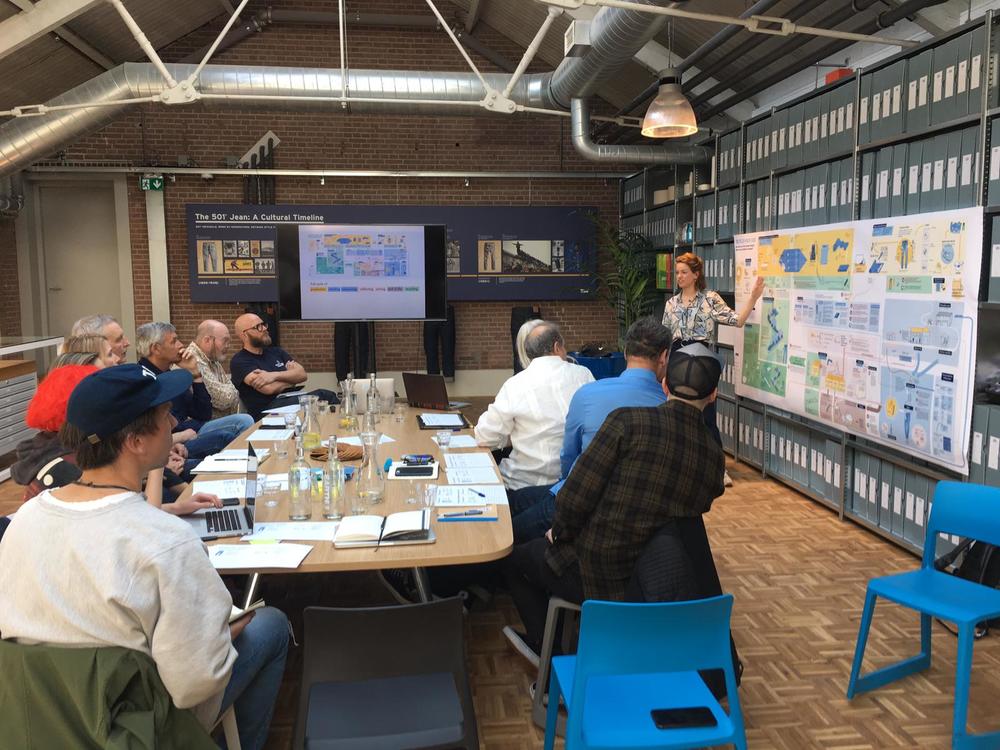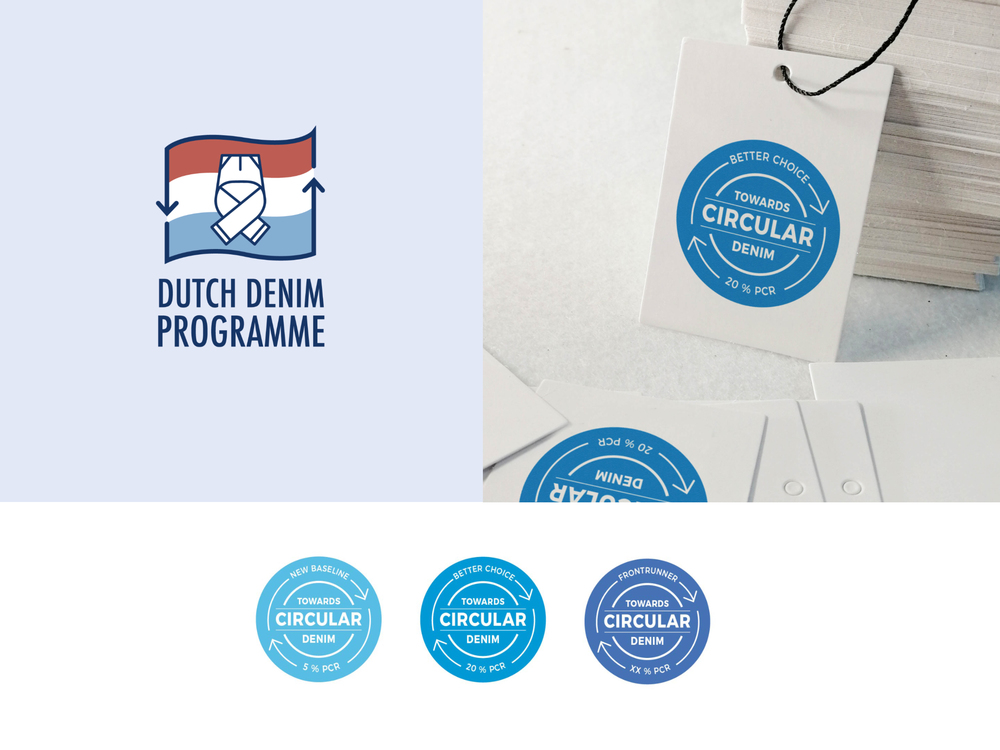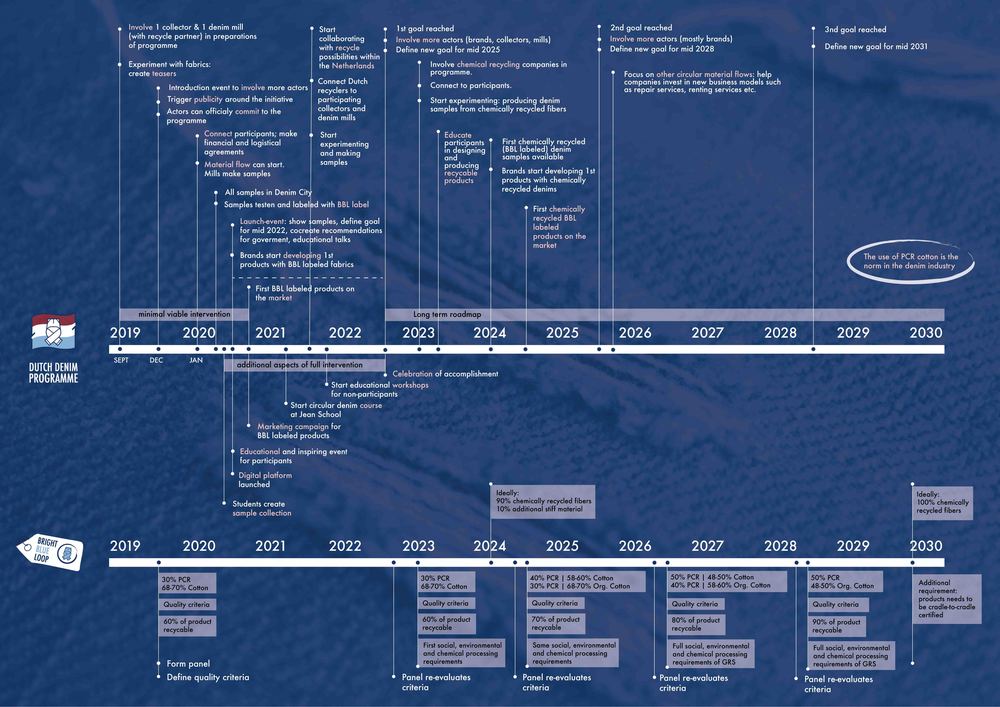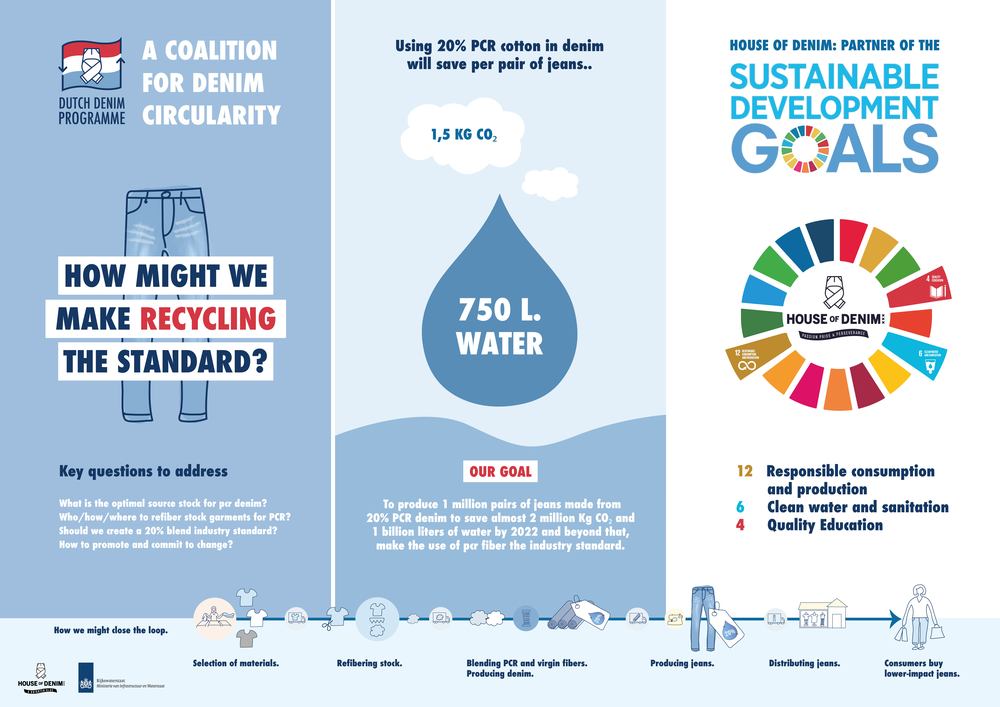Honorable Mention
A Circular Denim Industry
Design research for systemic change in the Denim industry, resulting in a collaborative programme
Solution
‘The Dutch Denim Programme’: A collaborative and action-oriented programme for the House of Denim foundation to realize growth in the use of Post Consumer Recycled (PCR) cotton in denim production. It stimulates a collaborative value chain by setting up the network, facilitating collaboration and initiating the material flow. Besides that, it stimulates mills to develop and launch new denims and stimulates brands to raise the demand by developing a recognizable label for PCR denim fabrics.
Project Description
Driven by the urgency to work towards a circular denim industry, the House of Denim Foundation wants to stimulate the use of post-consumer recycled (PCR) cotton in denim production.
To capture the complexity of the current value chain, design research is executed with a systemic and holistic approach. Interviews with more than 20 industry experts throughout the value chain are conducted to get to know the difficulties and opportunities in the production and consumption of recycled cotton from different viewpoints. The insights are communicated visually in a Giga-map to create a holistic understanding amongst important stakeholders. The full cycle of a pair of jeans is displayed including all challenges the industry is facing regarding PCR cotton.
Three key problems are defined and in different creative sessions, ideas are formed, improved and evaluated. Ideas with the most promising systemic impact form the base for the strategic programme ‘The Dutch Denim Programme’.
Overview of the Solution
Due to fast-fashion and our linear economic model, there is a growing demand for and pressure on cotton. Cotton cultivation causes negative environmental impact. This, combined with the growing amount of discarded textiles asks for a systemic change: a more circular system. Since Amsterdam is internationally known as the Jeans capital, the Dutch government wants to strive towards a more circular Denim industry and has involved House of Denim in this development. As a first step, House of Denim wants the stimulate the use of post-consumer recycled (PCR) cotton (cotton made from recycled textiles that are discarded after use). Using only 20% PCR cotton can save up to 750 liters of water per pair of jeans! This relatively small adjustment can lead to major savings when it’s adopted in big volumes.
This Msc Thesis project has investigated the current landscape of production, consumption, collection and recycling of denim. It has defined the key-problems and determined the key-actors and interactions within the cycle.
The three key-problems are defined as: 1. Brands perceive PCR denim as difficult, expensive and low-quality fabric. 2. To work with PCR cotton, individual brands are given a complicated logistical challenge that results in a time consuming and expensive process. 3. The use of PCR denim is not adopted as common practice due to the lacking supply and demand.
The solutions for these key problems are the foundation for ‘The Dutch Denim Programme’, a multi-stakeholder initiative. By setting up a network of motivated stakeholders throughout the value chain and organizing meetings to overcome difficulties, the material flow from collecting centers in the NL to recycle facilities and denim mills in Turkey can be generated. By a commitment of motivated denim brands beforehand, mills will be stimulated to develop more PCR denims. House of Denim will facilitate and promote the program and it’s participants within the industry.
To evaluate if the programme is financially feasible, a strategy for the financial flow is made. Funding is needed to start up the programme (for project management and marketing) but in the long term, the new financial and material flow is financially covered by the industry itself. Since a new textile sorting technology is active in the NL, sorting can be done more effectively and efficiently. Therefore, when the production will happen in bigger volumes, PCR cotton can be purchased for the same price as virgin cotton.
PROJECT TEAM
Lieke van Raan
INSTITUTION
Delft University of Technology, Faculty of Industrial Design Engineering, The Netherlands
Category
Product
FACULTY/COURSE ADVISOR
José Manuel Allard Serrano
STAKEHOLDERS
Client: The House of Denim Foundation
Research contributors: Ministry of I&W, Ministry of Defence, G-star Raw, PVH (Calvin Klein & Tommy Hilfiger), Kings of Indigo, Tenue de Nimes, Mudjeans, Kuyichi, Royo Tejidos, Candiani, Orta Anadolu, Rudolf Group, Saxcell, Wieland, Kingpins, Modefabriek, Denham the Jeanmaker, Modint, Sympany, Fronteer Strategy
PROJECT SOCIAL MEDIA
Concept website for the programme (not finished yet, under construction)





